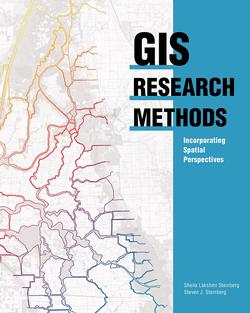Читать книгу GIS Research Methods - Steven J. Steinberg - Страница 90
На сайте Литреса книга снята с продажи.
Choose a topic
ОглавлениеThe first step in conducting your research is to choose a topic. As a researcher, you may already have your topic chosen for you by an employer, an organization, a funding agency, or a foundation that hires you to conduct research. If you are independently choosing your topic, it is a good idea to select a subject or issue that you find personally interesting.
It is a good idea to keep a journal of potential research ideas. In this journal, you could write down research ideas or thoughts as they come to you. Keep a journal like this for a month, and then go back to it and look for themes that may have emerged. By reviewing your thoughts and ideas over an extended time period, you might find that one or two ideas surface along with developed options for further study. Of course, you may also need to consider time limitations. If you are a student, can you complete your study in the course of a semester, or will it be more like a graduate thesis, extending over a longer period of time?
If your project is related to your professional role or position, what is your time frame? Are you working within the confines of a budget or policy cycle? Is there a pressing need that you are trying to address, or is this research going to be used for long-term planning?
It is also good to pick a topic that is feasible to study. For example, you may find a comparison of nontraditional sexual practices around the world to be interesting but may encounter some difficulty collecting primary data on this topic. When evaluating the feasibility of a particular topic, consider what, if any, prior work has been done on the subject. Additionally, you should think about how to locate and collect the data necessary to complete the analysis. You can usually find some existing, relevant data related to your topic. This step is important for assessing feasibility, because you want to avoid doing research in a vacuum, without consulting past research practice, geographic locations where your topic has been studied, and prior research results related to your topic. Once you have determined a topic, you can think about choosing a study site, perhaps something close to home you can visit. To determine how a GIS would fit into your topic, think about which relevant variables can be collected in space and what boundaries of analysis are appropriate to exploring the data.
